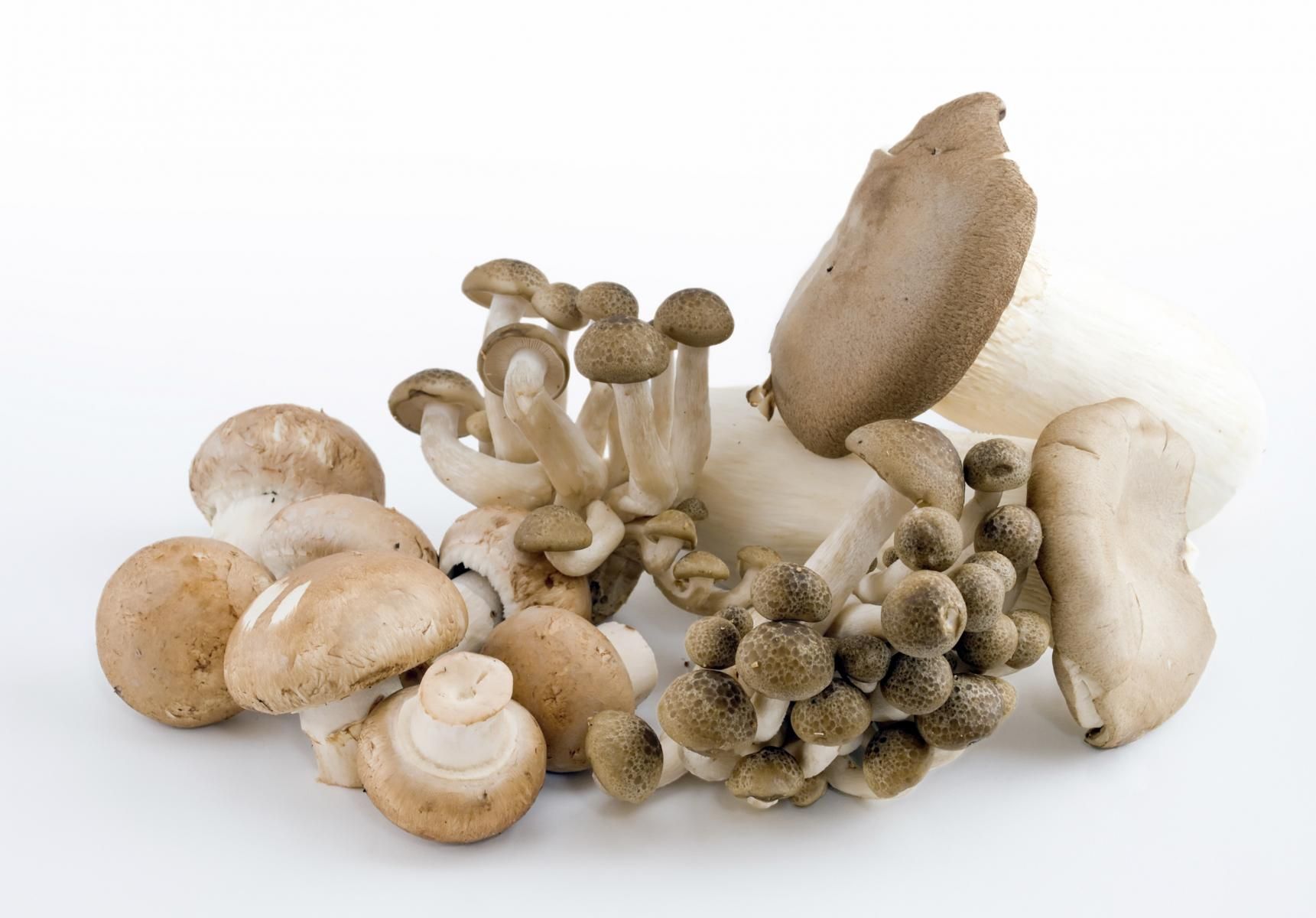Oyster Mushrooms Make Vitamin D
But are they more capable than other mushroom species?

By Robby Gardner, Associate Editor
As regular readers will know, mushrooms can produce vitamin D when they are exposed to ultraviolet light. So far, the notion is largely based on studies with white button mushroom (Bisporus agaricus). But oyster mushroom (Pleurotus ostreatus) may be a preferred spore for vitamin D.
Researchers from the University of Hanover secured oyster mushrooms from a local grower and illuminated various batches with ultraviolet light for up to 1 hour before freezing and grinding them into a powder ready for testing. In as little as 10 minutes, natural contents of ergosterol (a vitamin D2 precursor) converted into 100 µg of ergocalciferol (vitamin D2) per g of mushroom. The creation of vitamin D2 was most prominent in the lamella (gill) and stipe (stalk) of the mushroom. The lamella also accounted for the maximum increase of vitamin D2, reaching 160µg/g after 1 hour of UV exposure. The researchers say this part of the mushroom was most successful because of its large surface area and abundance of the ergosterol.
As UV light created an opportunity for vitamin D2, it also did so with vitamin D4. This less common form of vitamin D may offer its own health benefits, but it is often overlooked in lab analysis and the researchers admit “adverse effects of vitamin D4 on human health are still not known.”
Compared to the more popular white button mushroom, UV-exposed oyster mushroom accumulated vitamins D2 and D4 more efficiently. So efficiently that “One serving of [UV] pretreated sliced oyster mushroom covered the weekly demand of vitamin D of an adult.”
Scientists and regulatory bodies usually agree that vitamin D deficiency is prevalent throughout the world-especially in populations with low sun exposure or dark skin-but a debate remains over whether humans can use vitamin D2 as efficiently as they can vitamin D3. Still, one mushroom supplier maintains that the question is of little concern to certain shoppers.
“We are especially catering to vegans, because D3 is mostly from lanolin, or sheep’s wool,” says David Law, founder of Gourmet Mushrooms Inc. (Sebastopol, CA). “A fungal source, however, is definitely non-animal. It caters well to a group of people that want an animal-free product.”
Gourmet Mushrooms does not supply mushroom products validated for vitamin D content, but the company can contract an independent lab to do this for manufacturers. Then, a statistical algorithm can ensure that, on a random basis, a manufacturer can support its vitamin D claim on mushroom products.

